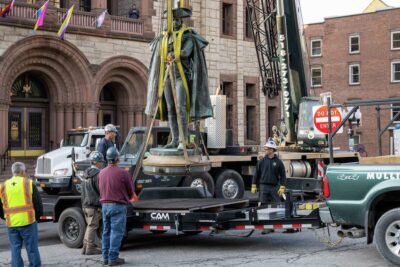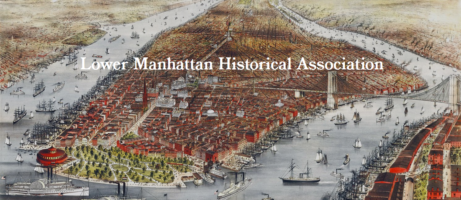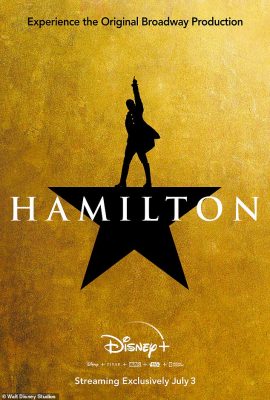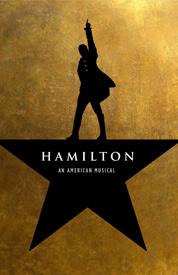
A previously below-the-radar person recently made the news when his statue was removed. The headline on the front page of the Arts section of The New York Times (June 26 print) was:
“In Albany a Statue Comes Down: The bronze of Philip Schuyler, a Colonial-era patriarch who owned slaves was removed.”
The almost full page continuation on page 5 had the headline “Albany Removes a Bronze Statue of a Slave Owner.”
The statue was of someone who was not well known. People passed it without thinking twice about who he was. He was a general during the American Revolution, but as the article begins:
There was a time when one probably had to be a committed Revolutionary War buff or an aficionado of early Albany aristocracy to know the name Philip J. Schuyler.
But that was before “Hamilton.”
The musical put Schuyler on the map.
In real life, Hamilton did marry a daughter of Philip Schuyler. The sudden musical prominence of the marriage drew attention to Hamilton’s father in-law. Schuyler owned a home in Albany now operated by the New York State Office of Parks, Recreation, and Historic Preservation. In addition he had a home north of the city in present day Schuylerville operated by the National Park Service. He also owned people and their burial site has been discovered at Schuyler’s Flats in-between those two locations. It has been excavated by the New York State Museum with appropriate rituals being conducted.
Finally, three years after the Albany mayor issued an executive order in 2020 to remove the statue it was. Naturally there had been a flurry of debate in local political circles about whether the statue should be removed and what should be done with it once it was. Those “discussions” have been dutifully reported in the local media and history outlets like New York State Almanack. Now that the statue has been removed, it has been featured in The New York Times. It made the big time. At no point during this period has there been any change in the scholarship about who Schuyler was and what is role had been in the American Revolution.
In the meantime, I just received this notification from the National Park Service:
Virtual Tours of Schuyler House
Experience a virtual tour of the Schuyler House. This estate was the northern plantation and country home of General Philip Schuyler both before and after the Battles of Saratoga. The British burned the original house and its outbuildings during their retreat. The present house, erected in 1777 shortly after Burgoyne’s surrender, was the center of Schuyler’s extensive farming and milling operations. Access the tour here.
And as far as I know it is business as usual as the state owned house in Albany which had doubled its attendance between Hamilton and Covid.
SHOULD OUR ALLIES BE HELD TO THE SCHUYLER STANDARD?
Schuyler’s treatment raises issues about how we should choose our allies. Should our allies also be held to woke standards like our statues and heroes? It used be that allies could be criticized for not being a Jeffersonian democracy, but now that standard itself is disputed. It turns out that being a Jeffersonian democracy in the real world may mean not being a “Jeffersonian democracy” in the idealized world.
So what should the United States of America do? Should the same care now applied to choosing our heroes also be applied to choosing our allies? Which of our allies would pass the woke test?
Which ally, if any, never had slavery?
Which ally, if any, never participated in the slave trade?
Which ally, if any, never derived any benefits from the slave trade?
The answer may be few and far between. In fact, during the Second World War, the United States allied with Joseph Stalin, one of the greatest mass murderers in the twentieth century. For Ukrainians today, Putin is repeating the horrors from a century ago.
THE REAL WORLD
The reality that many of America’s allies have not been democracies or champions of freedom is hardly a secret. The alliance with the Soviet Union against Nazi Germany has been justified as a political necessity. We cannot chose the world we live in so we have choices to make in that real world. Sometimes those choices are not very pleasant but that is the real world.
During the Cold War (World War III), the United States allied with many countries who were not even remotely free. We did so because they were not Communist, a plausible reason for doing so. Sometimes we did for less respectable reasons – like American big business had a lot invested in the current order and did not want to jeopardize its holdings. Think of how different things would have been and how many lives would have saved if only we had recognized that Ho Chi Minh and Fidel Castro were nationalists and not Communists.
Even today while we are working with Vietnam we still cling to the old paradigm of Cuba probably due to the large Cuban voting contingent in Florida. The Vietnamese voting bloc in the United States is much smaller and less influential. But thanks to the concentrated Cuban voting bloc and the Senators it helps elect, instead of Cuba becoming more allied with the United States, it is becoming more allied with China. This is how power politics works in the real world where being woke is irrelevant.
LESSONS FOR THE UNITED STATES
Our Puritan heritage leaves no room for slack. We are a judgmental people. You are pure or you are toast. Think of the reaction Lindsay Graham recently received from a MAGA audience. He was not sufficiently loyal and he paid the price. That is what happens in the Revolutions British, French, and Russian to say nothing of the fate of people on the wrong side of their local history power shifts in their own countries. Then the price is not simple political death but biological death as well.
Part of what made and, hopefully, still makes, the United States exceptional is that retribution has not been the dominant ideology within our country. Except for the elections of Lincoln and Biden, we have had peaceful transfers of power. We have not demonized political opponents as minions of Satan worthy of toppling or death. Our motto has been more of the Brooklyn Dodgers “wait ‘til next year” then it has been to take no prisoners.
We paid a big price because we demanded countries live up to what we claimed our standards were. We have and still are struggling to deal with the reality that other countries don’t exist to fulfill American fantasies. The removal of the statue of Philip Schuyler is a reminder that we have a long way to go here in this country if We the People are going to be able to live together, a goal that will be severely challenged in the 2024 election and the 2026 celebration or commemoration. In the meantime, the countries in the real world could not care less about our woke conflicts.









